Photo
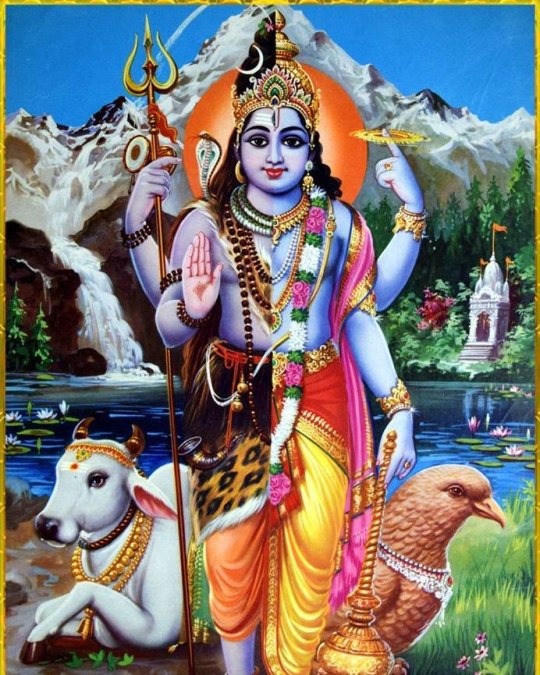
Download the TemplePurohit App (FREE) - https://goo.gl/igbuIy Sudama came to see Lord Krishna, his friend. Krishna was talking to Rukmini. As Sudama was clad in rags, he was hesitating to enter the palace. The guard informed Lord ~ “O Lord, a poor Brahmin named Sudama who is clothed in rags is awaiting at the gate of the palace.” Sri Krishna did not allow the guard to talk a word more. The word Sudama was enough. He ran out of the room barefooted crying: “O My dear Sudama, my sweet friend.” Rukmini was a bit annoyed, because Sri Krishna left the room abruptly. When Krishna came inside with Sudama, He noticed that Rukmini was in a sorrowful mood. “Dear Rukmini, forgive me. I am the slave of my devotees. I love them more than my very self.” Lord says “My devotees have sacrificed their lives for me, and therefore I have sacrificed my life for my devotees. They know no one. I know no one but them. I am their heart and they are my heart.” Yes, Lord says that his heart is in the grip of his devotees and such is his love for him. he can go to any extent to protect His devotees. In Shrimad Bhagwatam lord says he follows the footsteps of his devotees to apply dust of their feet on his forehead. "When sometimes the feeling of separation from Me is very acute in My devotees, I suddenly appear before them and quench their thirst for My company.” Lord says, mayi te tesu chapy aham: “I am always with My devotees.” Wherever there is an devotee, Lord is there like his shadow, always invisibly moving after him. "aham bhakta-parardhino, hy asvatantra iva dvija, sadhubhir grasta-hrdayo, bhaktair bhakta-jana-priyah" ~ “I am the slave of My devotees; I have no freedom apart from their will. Because they are completely pure and devoted to Me, my heart is controlled by them, and I reside always in their hearts. I am dependent not only on My devotees, but even on the servants of My devotees. Even the servants of My devotees are dear to Me.” Many paths to the same goal ~ one supreme ~ Hari Om Tat Sat Namah Shivaya || https://ift.tt/J9I42s8
29 notes
·
View notes
Photo

Our mind and our senses are interdependent on each other. The mind can only perceive what it senses, thus allowing Maya to be in control. We believe everything we imagine, everything we think. This belief is ego driven, we think we create. We don't. We only procreate. Only Nature creates. We sustain at her mercy. Our ego lands us in delusion; clouding our psyche. As long as we believe our imagination, as long as we mistaken this virtual world to be real, we will be bound by karma! We need to cut off from these chains of belief. And just exist, just live. The minute our mind is segregated from the senses, it stops perceiving; duality ceases to exist. With perception coming to an end, the need to segregate everything ceases. We accept all. The entire cosmos becomes our home. || Om Namah Shivaya || https://ift.tt/o5ZKPvA
21 notes
·
View notes
Photo

Ganesha, Dallas Museum of Art Dallas, Texas https://ift.tt/NemkzWI
115 notes
·
View notes
Photo
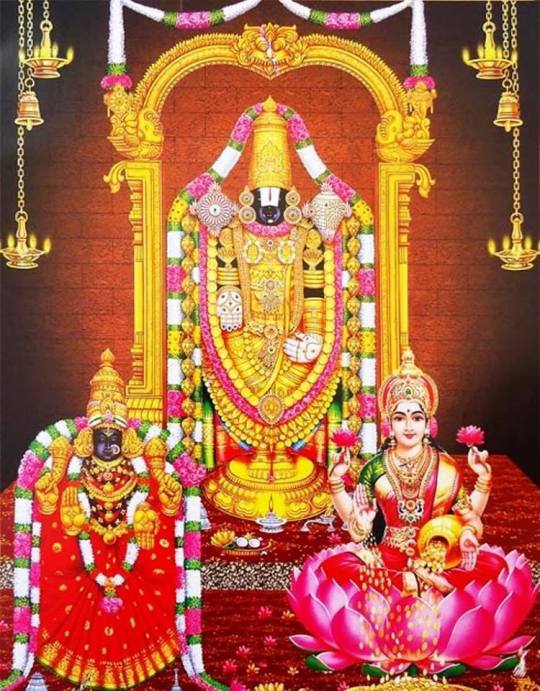
Lakshmi Venkatesa Charanaravinda Stotram --------------------------------------------------------------- Prayer to the lotus feet of Lakshmi Venkatesa ---------------------------------------------------------------- The prayer is addressed to the Lord Venkatesa accompanied by Goddess Lakshmi. The first stanza is a prayer to Goddess Lakshmi and others addressed to Lord Venkatesa. Eesanaam jagathosya venkatapathe vishno paraam preyasim, Thadwakshashala nithya vasa rasikaam thath kshanthi samvardhaneem, Padmalangrutha pani pallava yugam padmasanastham sriyam, Vathsalyadhi gunojwalam, bhagawatheem vande jagan matharam. 1 I salute that mother goddess of the entire world, Who is the darling of Vishnu, the god of the entire world, And the lord of Venkata mountain, Who lives close to his heart and grants peace to him, Who holds lotus flowers in her hands, Who sits in the yogic pose of lotus, And who shines because of her endearing qualities, Srimath krupa guna nidhe, hrutha sarva loka, Sarvagna, saktha, natha vathsala, sarva roopin, Swamin sushaila sulabhou, sritha parijathou, Sri Venkatesa charanou saranam prapadhye. 2 I surrender myself at the feet of Lord Venkatesa, Who is the storehouse of merciful qualities, Who takes care of the entire world, Who is all knowing and lover of his devotees, Who takes all forms, easy for approach of the good, And is like the lotus flower for them who depend on him. Rekha maya dwaja sudha kalasathapathra, Vruja, kusambhruha kalpaka sankha chakrou. Bhavyai alankruthavadhou, para thatwa chihnai, Sri Venkatesa charanou saranam prapadhye. 3 I surrender myself at the feet of Lord Venkatesa, Who is decorated by the symbols of decorated flag, Pot of nectar, lotus flower, conch and holy wheel, Which are the signs of his eternal grace. Thamradhara dhyuthi parajitha padma raghou, Bahyair mahobhir abhibhootha mahendra neelou, Udhyannakhamsu birudastha sasankhabasou, Sri Venkatesa charanou saranam prapadhye. 4 I surrender myself at the feet of Lord Venkatesa, Who has the copper colour of pink sapphire on the feet, And outside the bluish colour of the blue sapphire, And has shining nails which lead the shine of the moon. Samprema bheethi kamalakara pallavabhyam, Samvahane vibhava viklabha madha dhanou, Kanthava vagmanasa gochara soukumaryow, Sri Venkatesa charanou saranam prapadhye. 5 I surrender myself at the feet of Lord Venkatesa, Which are fondled with fear mixed with love, By the soft blossom like hands of Lakshmi, And which are pretty beyond the words and mind. Nithyanamadwidhi sivadhi kireeta koti, Pradhyuptha deeptha navarathna ruchi prarahai, Neerajanam vidhi mudhara mupadha dhanou, Sri Venkatesa charanou saranam prapadhye. 6 I surrender myself at the feet of Lord Venkatesa, Which are daily saluted by crores of crowns, Of Shiva and other gods, which greatly shine because, Of several embedded nine precious gems. And appear as if they are offering worship of light. Lakshmi maheethadhanu roopanijanubhava, Neeladhi divya mahishi kara pallavabhyam, Aarunya samkramanatha kila Sandra raghou, Sri Venkatesa charanou saranam prapadhye. 7 I surrender myself at the feet of Lord Venkatesa, Which reflect the dense tawny red colour of the, Blossom like hands of his divine consorts, Lakshmi, Goddess earth and Nila Devi. Parthaya thath sadrusa saradhina thwayaiva, Yow darshithou swacharanou saranam vrajethi, Bhooyopi mahyamihathou kara darshithou they, Sri Venkatesa charanou saranam prapadhye. 8 I surrender myself at the feet of Lord Venkatesa, Which was shown to Arjuna, who was commanded, To surrender to it and elect you as his charioteer, And which was shown to me as the place of ultimate surrender. Man moordhani kaliya phane vikatataveeshu, Sri venkatadri shikare sirasi srutheenam, Chithepyananyamanasam susamahithou they, Sri Venkatesa charanou saranam prapadhye. 9 I surrender myself at the feet of Lord Venkatesa, Which has been placed deeply in my mind, On the head of Kaliya, In the deep forests of Dandaka, On the peaks of Venkata mountain, in the Upanshads, And in the mind of great sages. https://ift.tt/cOFaY4h
19 notes
·
View notes
Photo

The Submerging temple of Mahadev in Kavi Kamboi, Gujarat Stambheshwar Mahadev Temple, also known as the Submerging temple is one of the most unusual Shiva shrines in India. Situated in Kavi Kamboi, Gujarat, this 150 year old Shiva Shrine is flanked by the Arabian Sea on one side and the Bay of Cambay on the other. According to Kumarika khand in Skand Purana, this Shivling was established by Bhagwan Kartik after he killed Tarkasur. What makes this Shivlingam unique is that it can be seen only during low-tide hours. At high tide, it totally disappears, thus earning the name 'disappearing temple of Mahadev'. https://ift.tt/SANhspq
22 notes
·
View notes
Photo
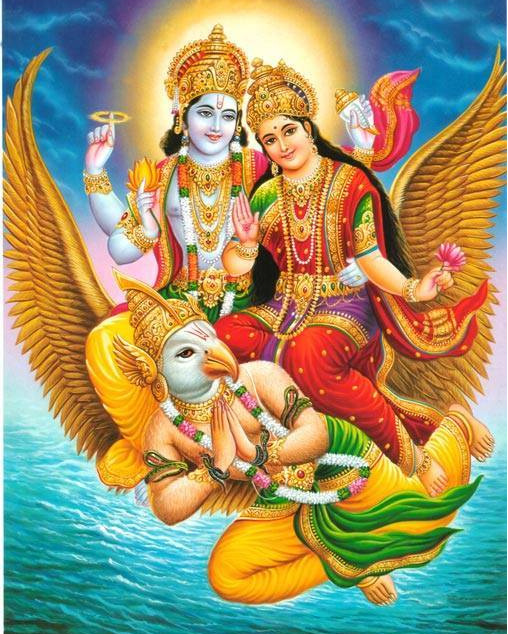
त्वमेव माता च पिता त्वमेव त्वमेव बन्धुश्च सखा त्वमेव । त्वमेव विद्या द्रविणम् त्वमेव त्वमेव सर्वम् मम देव देव ॥ In English: “Tvameva Maataa Ca Pitaa Tvameva Tvameva Bandhush-Ca Sakhaa Tvam-Eva | Tvameva Viidyaa Dravinnam Tvam-Eva Tvameva Sarvam Mama Deva Deva ||” Meaning: ‘O God, Thou art my father and mother Also art thou my friend and brother. The object of wealth and education, In thee I see my hope and salvation.’ https://ift.tt/YAGEiHg
32 notes
·
View notes
Photo

Our mind and our senses are interdependent on each other. The mind can only perceive what it senses, thus allowing Maya to be in control. We believe everything we imagine, everything we think. This belief is ego driven, we think we create. We don't. We only procreate. Only Nature creates. We sustain at her mercy. Our ego lands us in delusion; clouding our psyche. As long as we believe our imagination, as long as we mistaken this virtual world to be real, we will be bound by karma! We need to cut off from these chains of belief. And just exist, just live. The minute our mind is segregated from the senses, it stops perceiving; duality ceases to exist. With perception coming to an end, the need to segregate everything ceases. We accept all. The entire cosmos becomes our home https://ift.tt/tLcpC5l
44 notes
·
View notes
Photo

According to the Tirumala sthala Purana, the legend of Venkateswara is as follows: Once, sages headed by Kashyapa began to perform a fire sacrifice (homa) on the banks of the Ganges. Sage Narada visited them and asked them why they were performing the sacrifice and who is the patron deity of the sacrifice. Unable to answer, the sages approached Sage Bhrigu (who had an extra eye in the sole of his foot) to determine the worthy patron god among the Trimurti, the Hindu trinune gods. Bhrigu first went to Satyaloka, the abode of the god Brahma. At Satyaloka, he found Brahma reciting the four Vedas in praise of Vishnu, with each of his four heads, and attended upon by his consort Saraswati. Brahma did not notice Bhrigu offering obeisance. The angry sage cursed Brahma and left Satyaloka. He then reached Kailash, the abode of the god Shiva. Bhrigu found Shiva deep in meditation with his wife Parvati by his side. Feeling ignored, Bhrigu cursed Shiva too and left for Vaikuntha, the abode of Vishnu. At Vaikuntha, Vishnu was resting on the serpent Shesha with his consort Lakshmi in service at his feet. Bhrigu was infuriated and kicked Vishnu on his chest, the place of Lakshmi in Vishnu's body. To pacify the sage, Vishnu held his legs and pressed them gently. He squeezed the extra eye in Bhrigu's foot - the symbol of his egotism. The sage realized his folly and apologized to Vishnu. There upon, Bhrigu concluded that Vishnu was supreme of the Trimurti and informed the sages the same. Lakshmi was angered by Vishnu's action of placating Bhrigu who had kicked her place in Vishnu's body and thus insulted her. She abandoned her heavenly abode and resided in Karavirapur (Kolhapur) on earth. After her departure, a forlorn Vishnu followed suit and took abode in an ant-hill under a tamarind tree, beside a pushkarini on the Venkata hill, meditating for the return of Lakshmi, without food or sleep. Taking pity on Vishnu, Brahma and Shiva assumed the forms of a cow and its calf to serve him. Lakshmi in the form of a cowherdess sold the cow and calf to the king of the Chola country. The Chola king sent them to graze on the Venkata Hill along with his herd of cattle. Discovering Vishnu on the ant-hill, the cow provided its milk, and thus fed him. Meanwhile, at the palace, the cow was not yielding any milk, for which the Chola queen chastised the royal cow herder severely. To find out the cause of lack of milk, the cow herder followed the cow secretly and discovered the cow emptying her udder over the ant-hill. Angered by the conduct of the cow, the cow herder flung his axe to harm the cow. However, Vishnu rose from the ant-hill to receive the blow and save the cow. When the cow herder saw Vishnu bleed by the blow of his axe, he fell down and died of shock. The cow returned to the king, bellowing in fright and with blood stains all over her body. To find out the cause of the cow's terror, the king followed her and found the cow herder lying dead on the ground near the ant-hill. Vishnu rose from the ant-hill and cursed the king to become an Asura (demon) because of the fault of his servant. Upon the king pleading innocence, Vishnu blessed him to be born as Akasa Raja and that the curse would end when Vishnu will be adorned with a crown presented by Akasa Raja at the time of his marriage with Padmavati. Thereafter, Vishnu, as Srinivasa, decided to stay in Varaha Kshetra and requested Varaha (the boar avatar of Vishnu) to grant him a site for his stay. Srinivasa ordained that a pilgrimage to his shrine would not be complete unless it is preceded by a bath in the Pushkarini and the worship of Varaha before him. Vishnu built a hermitage and lived there, attended to by Vakula Devi who looked after him like a mother. A while later, a King named Akasa Raja who belonged to the Lunar race, came to rule over Tondamandalam. The childless Akasa Raja performed a sacrifice to gain an heir. As part of the sacrifice, he was ploughing the fields. The plough struck a lotus, which had an infant girl in it. Upon the advice of a divine voice that the girl would be a harbinger of fortune, the king adopted the girl and named her Padmavati, since she was found in a lotus (padma). The princess grew up into a beautiful maiden and was attended by a host of maids. One day, Srinivasa, who was hunting, chased a wild elephant in the forests surrounding the Venkata hills. In the elephant's pursuit, he was led into a garden, where Padmavati and her maids were picking flowers. The wild elephant frightened the princess. But the elephant immediately turned around, saluted Srinivasa and disappeared into the forest. Srinivasa, who was following on horse back, saw the frightened maidens, but was repulsed with stones thrown at him by the maids. He returned to the hills in haste, leaving his horse behind. Srinivasa informed Vakula Devi that unless he married Padmavati, he would not be calmed. Srinivasa then narrated the story of Padmavati’s previous birth as Vedavati and his promise to marry her. After listening to Srinivasa's story, Vakula devi offered to go to Akasa Raja and his queen and arrange for the marriage. On the way, she met the maids of Padmavati and learnt from them that Padmavati was also pining for Srinivasa. Vakula Devi went along with the maid servants to the Queen. Meanwhile, Akasa Raja and his queen Dharanidevi were anxious about the health of their daughter Padmavati. They learnt about Padmavati's love for Srinivasa. Akasa Raja consulted Brihaspati, the guru of the gods, about the marriage and was informed that the marriage was in the best interest of both the parties. The god of wealth, Kubera lent money to Srinivasa to meet the expenses of the marriage. Srinivasa, along with Brahma and Shiva started the journey to the residence of Akasa Raja on his vahana Garuda. At the palace entrance, Srinivasa was received by Akasha Raja with full honours and was taken in procession on an elephant to the palace. In the presence of all the gods, Srinivasa married Padmavati, thus blessing Akasa Raja. Together, they lived for all eternity while Lakshmi chose to live in his heart forever. Venkateswara's chief temple is located at the top of the Seven hills in Tirumala, the location of the divine marriage. A kalyana utsavam celebrates the divine marriage. Even today, during the Brahmotsavam at the temple, turmeric, kumkum and a sari are sent from the temple to Alamelu Mangapuram, the abode of Padmavati Devi . https://ift.tt/kyIEX0L
18 notes
·
View notes
Photo
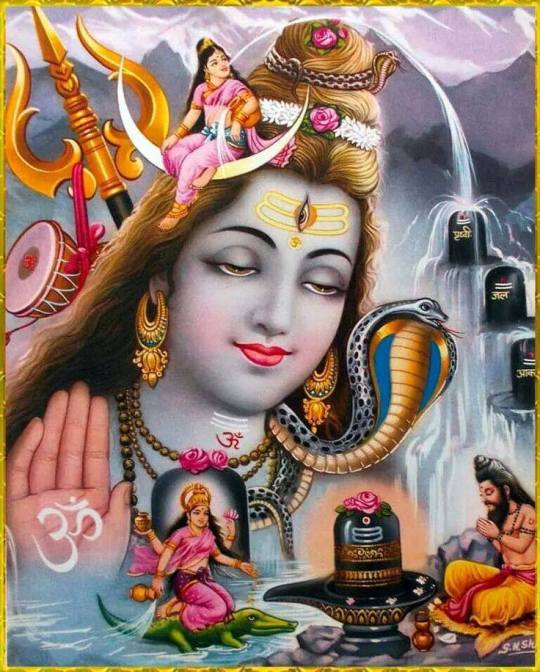
"The real is near, you do not have to seek it; and a man who seeks truth will never find it. Truth is in what is – and that is the beauty of it. But the moment you conceive it, the moment you seek it, you begin to struggle; and a man who struggles cannot understand. That is why we have to be still, observant, passively aware." ~ Jiddu Krishnamurti https://ift.tt/ndXGx6U
34 notes
·
View notes
Photo
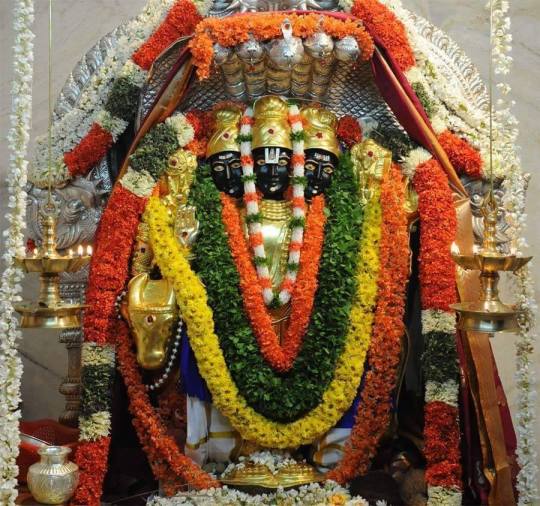
Dattatreya Dhyana Mantra - TemplePurohit.com Shaili Shrungi Katha Jholi Bhaut Lagaya Thanmo | Koti Chandra Ka Tej Jhulat Hai Chalat Apna Gatmo || Lord Dattatreya is an important deity in Hinduism. He is considered to be the manifestation of Lord Brahma, Lord Vishnu, and Lord Shiva combined. The Shri Dattatreya Dhyana Mantra or meditation Mantra is recited to seek the blessings of Lord Dattatreya. Chanting of this mantra is also believed to help calm one’s mental state and prevent nervousness. https://ift.tt/fFJEZjA
15 notes
·
View notes
Photo

Nirvana Shatakam, The Song of the Self by Adi Shankara . Mano Buddhi Ahankara Chitta Ninaham Nacha Shrotra Jihve Na Cha Ghrana Netre Nacha Vyoma Bhoomir Na Tejo Na Vayu Chidananda Rupa Shivoaham Shivoaham I am not mind, nor intellect, nor ego, nor the reflections of inner self (chitta) I am not the five senses. I am beyond that. I am not the ether, nor the earth, nor the fire, nor the wind (the five elements). I am indeed, That eternal knowing and bliss, Shiva, love and pure consciousness. https://ift.tt/uxvtkXV
46 notes
·
View notes
Photo

या देवी सर्वभुतेषु चेतनेत्यभिधीयते । नमस्तस्यै नमस्तस्यै नमस्तस्यै नमो नमः ॥ Yaa Devii Sarva-Bhutessu Cetanety-Abhidhiiyate | Namas-Tasyai Namas-Tasyai Namas-Tasyai Namo Namah || 1: To that Devi Who in All Beings is Reflected as Consciousness, 2: Salutations to Her, Salutations to Her, Salutations to Her, Salutations again and again. https://ift.tt/5z10MBO
28 notes
·
View notes
Photo

Khajrana Ganesh Mandir, Indore https://ift.tt/fpidD1V
14 notes
·
View notes
Photo

Shri Chintaman Ganesh ( Potli Wale Ganesh) Temple in Indore, MP https://ift.tt/BUCciEG
18 notes
·
View notes
Photo

Ramappa Shivalingam - TemplePurohit.com ॐ त्र्यम्बकं यजामहे सुगन्धिं पुष्टिवर्धनम् उर्वारुकमिव बन्धनान् मृत्योर्मुक्षीय मामृतात्॥ Om Tryambakam Yajamahe Sugandhim Pushti-Vardhanam Urvarukamiva Bandhanan Mrityormukshiya Mamritat॥ The Mahamrityunjaya Mantra, which translates to "the Great Death-conquering Mantra", is also called the Tryambakam Mantra. It is a verse of the Rigveda and it is addressed to Tryambaka, "the three-eyed one", an epithet of Rudra, later identified with Shiva. This mantra is addressed to Lord Shiva for warding off untimely death. It is also chanted while smearing Vibhuti over various parts of the body and utilised in Japa or Homa to get desired results. Translation of the Mantra Om - Almighty God Tryambakam - The three-eyed One Yajamahe - We worship Sugandhim - The fragrant Pushti-Vardhanam - One who nourishes all beings Urvarukamiva - Like a cucumber Bandhanan - Bondage of worldly life Mrityormukshiya - Liberate us from the fear of death Mamritat - Never separated from our Immortal Nature We worship the Three-eyed Lord who is fragrant and who nourishes and nurtures all beings. As is the ripened cucumber is freed from its bondage, may He liberate us from death for the sake of immortality. मन्त्र का अनुवाद ॐ - सर्वशक्तिमान ईश्वर त्र्यम्बकं - त्रि-नेत्रों वाला यजामहे - हम पूजते हैं सुगन्धिं - मीठी महक वाला पुष्टिवर्धनम् - वह जो पोषण करता है उर्वारुकमिव - ककड़ी के समान बन्धनान् - तना मृत्योर्मुक्षीय - मृत्यु के भय से हमें स्वतंत्र करें मामृतात् - मोक्ष से नहीं हम त्रि-नेत्रीय वास्तविकता का चिन्तन करते हैं जो जीवन की मधुर परिपूर्णता को पोषित करता है और वृद्धि करता है। ककड़ी की तरह हम इसके तने से मुक्त हों, अमरत्व से नहीं बल्कि मृत्यु से हों। https://ift.tt/WOFn8vp
22 notes
·
View notes
Photo

"Durge Smrita Harasi Bhitimshesh jantoh Swasthaih Smritamati Mateev Shubhaam Dadasi Daridray Duhkh Bhayaharini ka Twadanya Sarvopakarkaranay Sadadrachitta" https://ift.tt/W527qHo
22 notes
·
View notes
Photo

Bhagavad Gita Chapter 7 Verse 29 - TemplePurohit.com jarā-maraṇa-mokṣāya mām āśritya yatanti ye te brahma tad viduḥ kṛtsnam adhyātmaḿ karma cākhilam Word Meanings: jarā — from old age; maraṇa — and death; mokṣāya — for the purpose of liberation; mām — Me; āśritya — taking shelter of; yatanti — endeavor; ye — all those who; te — such persons; brahma — Brahman; tat — actually that; viduḥ — they know; kṛtsnam — everything; adhyātmam — transcendental; karma — activities; ca — also; akhilam — entirely. Explanation: Birth, death, old age and diseases affect this material body, but not the spiritual body. There is no birth, death, old age and disease for the spiritual body, so one who attains a spiritual body, becomes one of the associates of the God and engages in eternal devotional service is really liberated. Aham brahmasmi: I am spirit. It is said that one should understand that he is Brahman, spirit soul. This Brahman conception of life is also in devotional service, as described in this verse. The pure devotees are transcendentally situated on the Brahman platform, and they know everything about transcendental activities. Worshipping the Supreme Lord Krishna such enlightened devotees become blessed and acquire knowledge of everything to be known. This is specified by the words te brahma tad viduh krtsnam meaning they get knowledge of the brahman the spiritual substratum pervading all existence and everything else of consequence. They with pure hearts who take complete refuge in the Supreme Lord being free from the sway of duality and any ideas of rewards for the actions they perform, even for moksa or liberation from the cycle of birth and death.. Such enlightened beings understand the entire field of action to be performed in the material manifestation meaning what is to be done and what is not to be done and the total purpose of embodied existence as a human being. https://ift.tt/R4U2Wau
26 notes
·
View notes